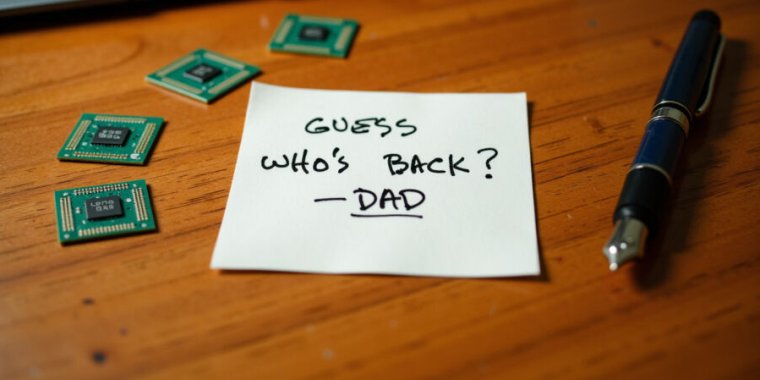This week's best things
Gen Z's regrets about social media, Adam Koszary thinks it has value, Google's AI search fails, replicating handwriting with AI, the importance of generalists, a story about Gmail, Netflix's endless library, unparliamentary language, and an interview with Clare Reddington.

I'm back from holiday, strong recommendations for Corsica and Sardinia. Here's a photo

Gen Z Has Regrets
In this New York Times article comes the finding that "almost half of Gen Z wishes social media platforms like X and TikTok didn’t exist."
"Was social media a good invention? One way to quantify the value of a product is to find out how many of the people who use it wish it had never been invented. Feelings of regret or resentment are common with addictive products (cigarettes, for example) and addictive activities like gambling, even if most users say they enjoy them.
For nonaddictive products — hairbrushes, say, or bicycles, walkie-talkies or ketchup — it’s rare to find people who use the product every day yet wish it could be banished from the world. For most products, those who don’t like the product can simply … not use it.
What about social media platforms?"
What’s the point of social media
In this article Adam Koszary shares his perspective on the value that social media can bring for organisations.
"When you work for an organisation, you can fall into the trap of thinking that anything can be solved with a document. If we just put down the right words in the right order in a strategy document, we will both reap the benefits of social media without experiencing any of the pain.
Social media, however, is messy.
It’s messy because it isn’t one step removed from our audiences, in the way that a poster on a bus or a leaflet pushed through a door is. When we post something on social media we do so with the simultaneous expectation and fear of a response. We want all of the benefits without any of the pain.
Because social media can be the manifestation of a cultural organisation’s mission. We can use it to have real conversations, to share difficult or entertaining stories, and we can have a public forum to discuss the knotty complexities of what culture, history and art mean to us."

Google's AI Search Fails: From Bizarre Misinformation to Public Health Risks
This article from Moz about Google introducing 'AI powered' results into its search product is from earlier this year so I suspect some if not all of these have been fixed by now.
But it's a stark example of the dangers of rushing to introduce new, and fairly unpredictable, technology into widely-used existing products.
The mistakes cover everything from results claiming that Helen Mirren is the same age as Halle Berry, to advice that running with scissors is good exercise and that non-toxic glue can be a nice pizza topping (this last one went fairly viral at the time).

My dead father is “writing” me notes again
In further 'AI is going to cause as many problems as it puportedly solves' news, this article in Ars Technica looks at AI tools being used to replicate handwriting, including that of the deceased.
"Recently, an anonymous AI hobbyist discovered that an image synthesis model called Flux can reproduce someone's handwriting very accurately if specially trained to do so. I decided to experiment with the technique using written journals my dad left behind. The results astounded me and raised deep questions about ethics, the authenticity of media artifacts, and the personal meaning behind handwriting itself."

Old Internet People
I really enjoyed this issue of Martha Henson's newsletter, not least because I and many of my friends are 'old internet people' but also because many of the digital leaders that are working most successfully in the cultural sector more-or-less fall squarely into Martha's description of 'generalist'.
"But as I got to about 40, and started to look around, I saw the landscape had changed immeasurably. The “digital producers” I knew were dwindling, they had specialised or had become senior managers in their institutions. Professionalisation of the sector and the wide adoption of agile methodologies has created new roles that fit a very specific practice, the product managers, product owners, delivery managers and very technical engineers etc. (Although I would argue, these roles aren’t as clearly defined as people believe them to be, and the practice itself has limitations). Currently I am a product manager acting as a product owner on one project. On a different recent one I was a user researcher providing product support. Shrug emoji, words words words.
Really, I’m a generalist, and I feel like increasingly that these days that counts against me rather than in my favour, as I compete with others who do only one of these things, have a qualification to say so, and are steeped in the rituals and practices of agile/scrum etc. As a consultant, wide-ranging knowledge is still valuable when working with smaller organisations in particular, who may need support in multiple areas to “sort out their digital offer” but it is harder to find those rare clients who have these needs and can pay for help."
How Gmail solved the impossible problem
A nice read on Elizabeth Laraki's substack, if you're interested in user experience and stories about incredibly widely-used products.
"Until 2005, the idea of threaded conversations (grouping messages with their replies) was a pipe dream for email. At the time, new emails and replies were all handled as separate messages — so there was no concept of a “conversation” in email.
However online discussion forums, like Usenet, were popular and their format was conversational. This sparked significant academic research on how emails could be threaded into conversations.
Unfortunately, the research concluded it was impossible — email had too many edge cases like someone replying to an earlier message, someone replying to a subset of the recipients, the conversation forking, etc.
But the Gmail team was convinced there was a solution."

How everyone got lost in Netflix's endless library
I'm sure all of us have experienced the decision paralysis that sets in when browsing any of the libraries of the big streaming platforms.
This is a good read about the business models of these streaming platforms and how these vast libraries are interacted with by hundreds of millions of users.
"The library we enjoy today may have been built with debt instead of venture capital, but its sheer enormousness reveals it as a visitor from another universe, something that could have only been dreamed up in Los Gatos. Its size constantly fluctuates as it inhales and exhales material, but the most recent snapshot the company has offered shows more than 16,000 titles of content, thousands of them Netflix Originals, created for or acquired by the platform, to live there practically in perpetuity, even as they are slowly entombed by new shows, new movies, new documentaries."
Unparliamentary language
A fun read spotted via my colleague Zosia on the words (mostly insults) that are banned (or judged to be 'unparliamentary') in various parliaments around the world.
Australia, perhaps unsurprisingly, makes up a lot of the list with entries like this, "We have a Treasurer who is a goose an absolute goose".

Clare Reddington
My latest Digital Works Podcast conversation is a chat with Watershed CEO, Clare Reddington.
Lots in here to enjoy about leadership, risk appetite, culture, digital confidence and more.

This week's consumption
On holiday I read James by Percival Everett, Strong Female Character by Fern Brady, The Eight Mountains by Paolo Cognetti and On Trails by Robert Moore. All of which were very good in very different ways.
I'm currently reading Julia by Sandra Newman, which I picked up at Rome train station, it's proving to be a bit of a struggle to be honest.
I saw Nick Cave and the Bad Seeds play in Copenhagen on Sunday which was astonishingly good as always, Warren Ellis is a wizard.
We've been watching season 4 of Only Murders in the Building which is excellent, and made us realise that OMITB has a very strong soundtrack dating back to season 1.





